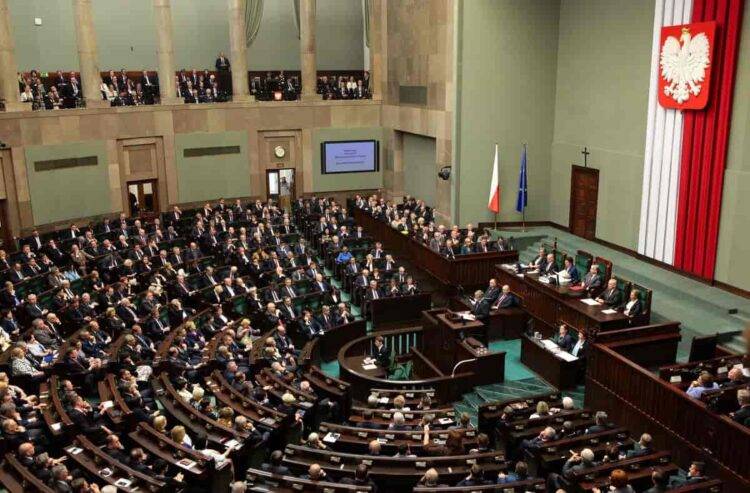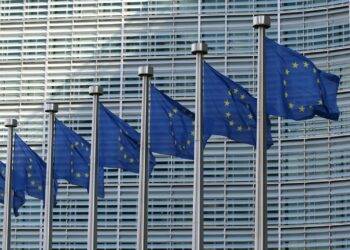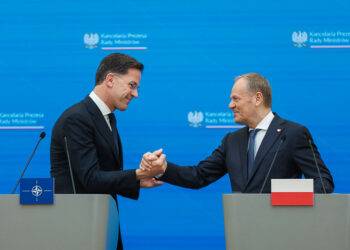In the 2023 parliamentary elections in Poland, the Law and Justice party (PiS) stood sturdy, gaining the largest share of the vote at 35.38%, but fell short of attaining a majority in the Sejm, Poland’s lower house. Despite its lead, the PiS is confronted with the likelihood of the Civic Coalition forming a coalition government, flaunting a new dynamic on the Polish political stage. The voter turnout was at the record level – 74%.
- More News from Poland on our Homepage.
- Sign up to our Newsletter to receive a weekly recap and stay informed about current events in Poland
- Don’t forget to follow us on Facebook.
In a highly anticipated electoral event, Poland witnessed a pivotal moment in its political landscape as the nation cast its votes in the 2023 elections. The results of this election, marked by a notable voter turnout, reflect the democratic choice made by the Polish electorate. The ruling Law and Justice (PiS) party sought to secure its continued dominance, while opposition parties aimed to challenge and reshape the political status quo.
The ruling Law and Justice party (PiS) retained their position as the most popular party, capturing 35.38% of the vote but fell short of obtaining a majority in the Sejm, the lower house of Poland’s parliament. The main opposition, centrist Civic Coalition secured second place. The newly emerged Third Way also made its mark in these elections. Despite widespread participation that saw full results from all electoral districts, the ruling party did not achieve a standalone majority, reflecting a potential shift in the political landscape of Poland.
The Civic Coalition, taking 30.70% of the vote and executing a strong performance, emerges as the cornerstone of this prospective coalition. Alongside the Third Way and The Left, the coalition seeks to offer an alternative path forward for the nation.
Leading political analyst, Tomasz Zalewski, notes, “The proposed coalition underlines the diverse Polish political field. It echoes the craving for alternatives among many citizens, especially in urban and younger demographics.”
The implications of the election spell potential shifts in the nation’s landscape. With the Civic Coalition eyeing collaboration with The Third Way and The Left, changes could be seen in domestic policy and in Poland’s stance towards the EU. Recent disagreements between PiS-led Poland and the EU mainly focused on judicial reforms and discrepancies around democratic standards. A coalition government, contrary to PiS, might offer more harmonious relations.
- Read more about the elections and its stakes in here.
Elżbieta Lis, a Warsaw-based political commentator, comments, “The plurality of the votes signifies a complex political chessboard. But in complexity, there’s the potential for change and stability with the EU through this new alignment, which could reframe Poland’s European narrative.”
Looking ahead, Poland is navigating through a vital junction. The rise of the Civic Coalition, alongside their proposed partners, can redefine the national political landscape. These election results signify Poland’s political fluidity and the potential for change in its relations with the EU and domestic governance.
In the wake of the turbulent 2023 Elections, Poland stands on the brink of a time of both challenge and potential. The elected leaders now bear the responsibility of navigating the nation through the murky waters of economic, social, and environmental issues that confront it. Regardless of the political divide, the popular mandate is clear – the people of Poland crave progress, justice, and sustainability. Looking ahead, the path is undoubtedly fraught with uncertainty, yet it also offers the possibility of remarkable transformation. It remains to be seen how these elected guardians would wield their powers and steer Poland towards a new era.
Following the results of the 2023 Elections in Poland, certain ramifications for numerous social groups are anticipated. Among young people, the election outcome seems to have sparked vigorous political engagement, reflecting their ambition for a future characterised by innovation and global consciousness. The electoral mandate implies heightened political participation for women, signifying potential advancements in gender equality and empowerment in the public sphere. However, for minorities, the picture may be somewhat less certain. The election has underscored the need for steadfast policies that promote inclusivity and ensure their concerns are adequately addressed.
When comparing the 2023 results with previous elections, there’s a noticeable shift in Poland’s political landscape. This election registered a greater voter turnout, implying a more politically awakened populace. Furthermore, growing support for different platforms indicated a move towards political diversity and away from past dichotomies.
Moving forward, the newly elected parliament will be tasked with addressing significant issues. Key among these will be economic recovery and sustainability, as well as addressing societal inequalities. Moreover, the unresolved matter of climate change will likely take centre stage, demanding comprehensive planning and decisive action from Poland’s lawmakers. Another anticipated debate will revolve around education and healthcare reforms, which have been critical areas of concern for the populace. In the ensuing years, the parliament’s ability to effectively tackle these issues will no doubt be the gauge of their success.
- Thank you for reading the article – we’re glad you are with us.
- Follow us on Facebook and Twitter to stay up to date with News from Poland.
- For the most beautiful pictures of Poland – follow us on Instagram.


















